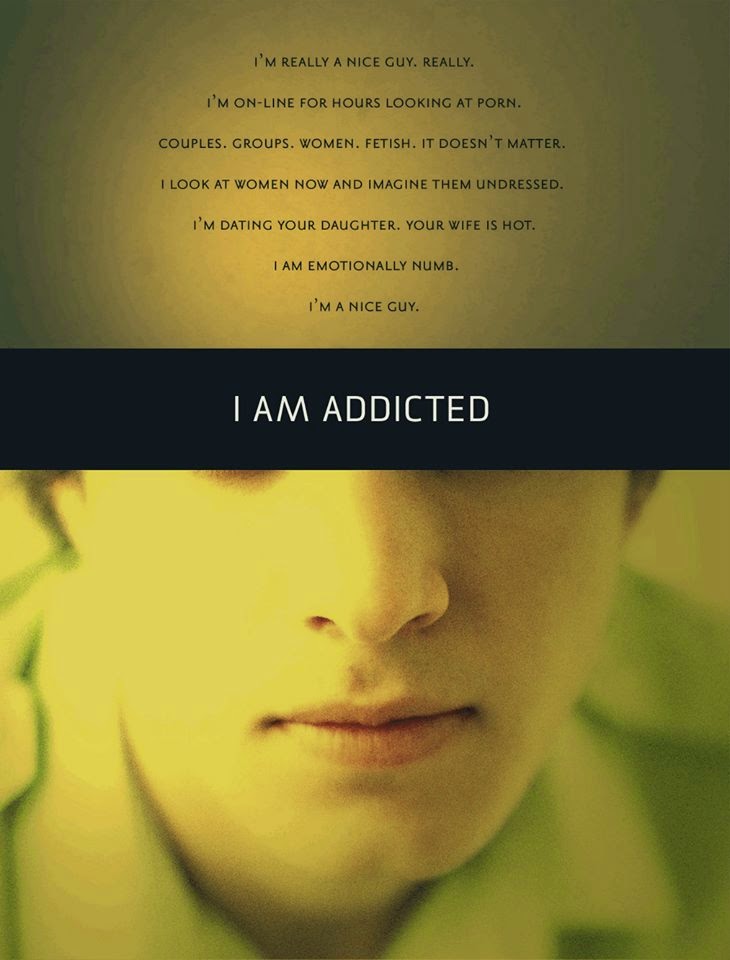Research has shown that the average age of exposure to pornography is 11, and that almost every teenager will be exposed to pornography by the time they graduate high school. Studies have also shown that because of the lack of development in the pre-fontal cortex of the brain prior to age 21, adolescents are far more susceptible to move from habit, to compulsion, to addiction. Behavioral addiction researcher Mark Butler has stated that at their core, "all addictions are [just] maladaptive coping strategies," and that the average addict goes through 7 different treatment programs before one sticks. This is because when it comes down to it, alcoholism isn't about alcohol, eating compulsion isn't about food, and sexual addiction isn't about sex. All addictions are about escaping reality - whether it's to feel happier, more powerful, numb to pain, or just to escape life and be someone else for a while.
Taking all of this into consideration, we realize that what we're really looking at are individuals who are viewing pornography in an effort to hide or escape from deep and difficult emotions that have plagued them their entire lives. They are individuals that are hiding, and desperately reaching out for a helping hand; people like you and me who struggle with depression, anxiety, a history of abuse, and bullying. The difference is that their coping mechanism is not only less socially acceptable than a pan of brownies or Netflix marathon, but it has ensnared them and left many feeling hopeless. And that's the worst part, the entrapment. Those who use pornography to escape from real life, and have found themselves caught in the chains of addiction emerge to real life to find that it's worse and more painful than when they left it for their fantasy world, causing them to retreat even further. It's a psychological cycle that is near impossible to escape without professional help.
Addiction is just that - addiction. Addicts can't "just stop," and are often teenagers and young adults who have, by no fault of their own, become caught in the trap of addiction. But that's not the message sent by today's anti-pornography campaigns. Instead these children, and emerging adults who may be yearning to escape from their addiction are bombarded with messages that correlate their struggle with extreme outcomes such as sexual violence, divorce, and erectile dysfunction. And what we fail to remember is that most of these individuals aren't sexual predators. They're just people like us, caught in a tangled web that they want to get out of. I fear that what we're creating is a culture of fear and shame, so that when one of these young individuals wants to reach out they feel as if they can't because they will be met with rejection, and judgement. To me, it appears to be a perfect storm for shaming our youth into hiding, especially those who are growing up with a strong value system against pornography.
I understand that some of these campaigns offer some amazing assistance programs for struggling individuals, but I rarely see those kinds of posts shared on my Newsfeed. We need a more open dialogue about addiction in general, and a better understanding of how it works, so that we can have true compassion when a loved one shares with us their struggles. We need to present a message of hope to those who are fighting this and extend open arms, and offer loving conversations. While I personally believe that pornography can become addictive, and has the potential to be destructive to relationships, I believe even more strongly that if we continue to create a culture of fear surrounding sexual addiction instead of love, openness and hope, we will have a more difficult time winning this battle.
 |
| Anti-pornography campaign from Pornography Harms |
I understand that some of these campaigns offer some amazing assistance programs for struggling individuals, but I rarely see those kinds of posts shared on my Newsfeed. We need a more open dialogue about addiction in general, and a better understanding of how it works, so that we can have true compassion when a loved one shares with us their struggles. We need to present a message of hope to those who are fighting this and extend open arms, and offer loving conversations. While I personally believe that pornography can become addictive, and has the potential to be destructive to relationships, I believe even more strongly that if we continue to create a culture of fear surrounding sexual addiction instead of love, openness and hope, we will have a more difficult time winning this battle.




.JPG)


